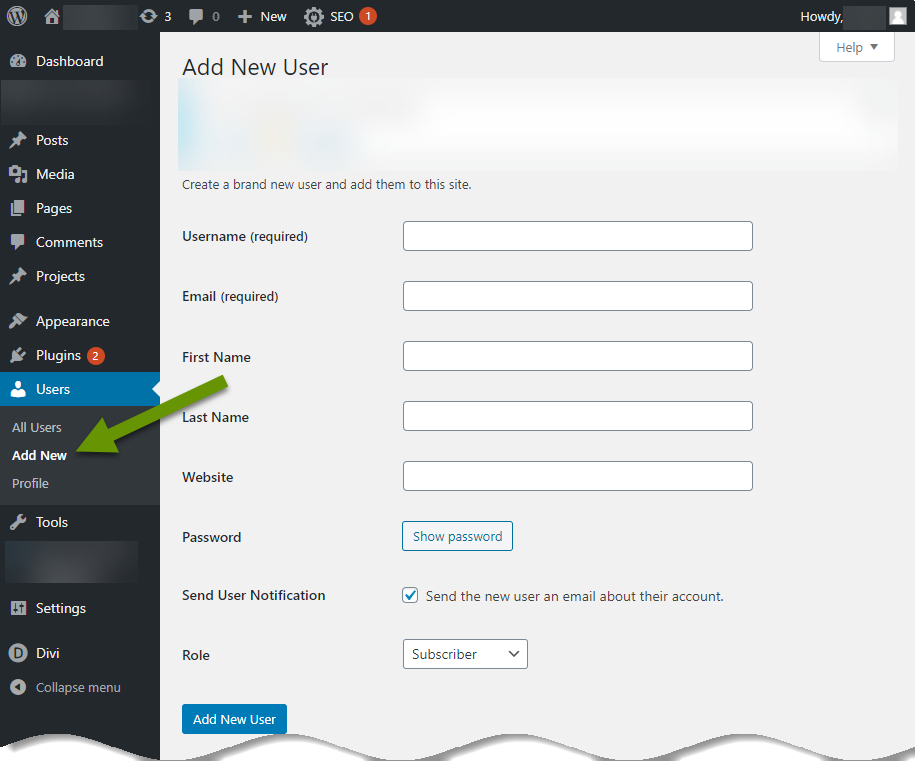3 Things to Ensure you Get When Hiring an IT Consultant
Hiring an IT consultant for your business or personal needs can be intimidating for many reasons. One big reason includes the need to trust that person or organization because they will have access to your network, servers, computers, and various accounts and software applications. Not only is it imperative to discuss their knowledge and skillset, but there are other things to consider that can be equally important.
This post discusses three main areas you should be aware of and expect when hiring an IT consultant.
3 Things to Ensure you Get When Hiring an IT Consultant
Outside of knowledge and skillset, the three main areas to consider when hiring an IT consultant are:
- Maintaining access to your accounts
- Billing and communication
- Putting your interests first
I specifically left skillset and knowledge outside of this post because the needs of each person and business that an IT consultant faces is at least slightly different and at most vastly different. Technology is like the human body - no two devices are the same even though they are made up of the same basic components and have some requirements in common to properly run.
This post focuses on important things beyond skills you should be looking for when you search for an IT consultant.
Maintaining access to your accounts
I cannot stress this one enough! If you have an IT consultant help you, be sure you maintain ownership of software and installation keys, services and access to log into all systems. As an example, if they set up a website for you, make sure you have access to edit the site, that your domain and DNS records are associated with an account you control, etc. The last thing you want to do is allow someone to "own" your intellectual property.
Continuing with the website example, if a consultant builds you a website and you don't have access, you might be in a really bad place if they move or if something happens to them. Instead of being reactive, be proactive and check to be sure you have all the access you need. Ask for credentials and take the time to verify they work.
The image below shows how easy it is to create a new user in WordPress. The process takes less than a minute and will automatically send an email invitation to the new user.

It often makes sense to have a consultant purchase items on your behalf as they can make sure you get the right thing which can save time and money. This is a great use of your consultant, just be sure they share the information with you and that you have the access you need to any applications or services.
Billing and communication
These are technically two different things, but I believe it is appropriate to combine them. It is important to have a consultant whose invoices/bills you understand. Would you pay a credit card bill you didn't understand and had no idea what you were paying? Hopefully not!
Treat a bill from an IT consultant the same way - make sure you understand what is being billed. If you are not sure, ask for clarification. Often times bills can be cryptic. Whether intentional or not, the end result is the same - you cannot be certain you aren't overpaying or paying for something twice if you are unsure of what you are paying.
Ask for detailed bills and track what you are paying for so you know if something seems off. If you pay for annual services, add an item to your calendar so you have a general idea when that bill should come due again. This is a very simple and fast way to quickly see if a particular bill is appropriate. We all get busy and anything we can do to make sure we don't pay more than we should is helpful.
It is important to treat communications with an IT consultant the same way - make sure you understand what is happening. Obviously there is a limit to this, if IT isn't your profession, there are going to be things you don't understand. However, if you find someone who makes you feel like what they are doing is magic, or that they could not possibly explain what they are doing for you even in the simplest of terms, you may want to consider using someone else.
Technology is not magic, it is like any other learned skill. Yes, some people are going to be naturally good at IT. Yes, IT can be complex and often times frustrating. Yes, IT often has its own language. But it can also be understood, and it is not that hard to explain to someone that there was an issue with a recent update that caused X software to stop operating properly and you're going to fix it by rolling back an update.
The takeaway is to look for someone who takes the time to explain what is going on to your particular satisfaction. If you don't do this, you will never fully trust that person and you aren't doing them or yourself any favors.
Putting your interests first
This is by far one of the hardest things to determine. How can you be sure someone is giving you the best advice when they are recommending replacing, upgrading or modifying a system? There are several factors to consider, and beyond those, you should judge by past experiences with that person, utilizing second opinions from people you trust, and trusting your gut.
If the person is selling the equipment they are recommending, be sure it is not more than you need. It's a good idea to purchase tech equipment you plan to use for several years, but that does not automatically mean you need the most expensive model. Do you save a lot of files? If not, you certainly don't need a 1TB solid state drive. Be sure what is being recommended is reasonable for how you intend to use it.
If a consultant is recommending a purchase that they gain no benefit from, it is easier to assume they are recommending what is best for you or your business. However, don't assume someone who is selling something is doing it to take advantage of you. They might sell products to save their clients time, to make sure their clients get quality equipment, or to prevent their clients from being taken advantage of by someone with higher markups.
One of the most important ways to determine if an IT consultant is looking out for your best benefit is by the questions they do or don't ask. Do they ask what pain points you have? What struggles you or your staff observe? How you plan to use new devices in the future - will you be changing software anytime soon or have other major changes that might affect their recommendations? Are you happy with the brand/software/service you currently use?
The examples above are just a start and there are many other questions that should be asked depending upon the issue you have or the things you are trying to accomplish. The important thing to note is that the consultant should ask you questions and understand what your unique needs are BEFORE they advise a product, service, or hardware purchase.
Also, always make sure what you are purchasing is new, not refurbished, or a device with some new parts thrown into it. Inquiring about the warranty is a good way to help protect yourself. Most devices can also be looked up by serial or device number via their manufacturer's website to verify the warranty status. I encourage you to do this!
Lastly, it is never a bad idea to ask for a second opinion. Request a quote then consult someone you know who is knowledgeable in that area and ask their thoughts. An honest consultant, who is looking out for your best benefit, will not mind!
Hiring an IT consultant can be one of the best things you do for your business. It saves you time, which you can use to do what you do best. Spending hours on IT making little progress is more costly than using that same time to make money at your profession and pay a consultant for a much smaller amount of time! However, it is important to check that the consultant shares important information with you like access to your accounts, explains what they are doing/billing for and why, and that they have your best interest in mind.
As always, it pays to go a little slower and be safer than to rush a decision that has the potential to greatly impact you or your business in a negative way if done wrong!

